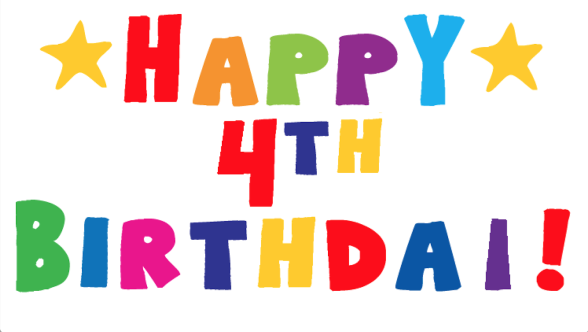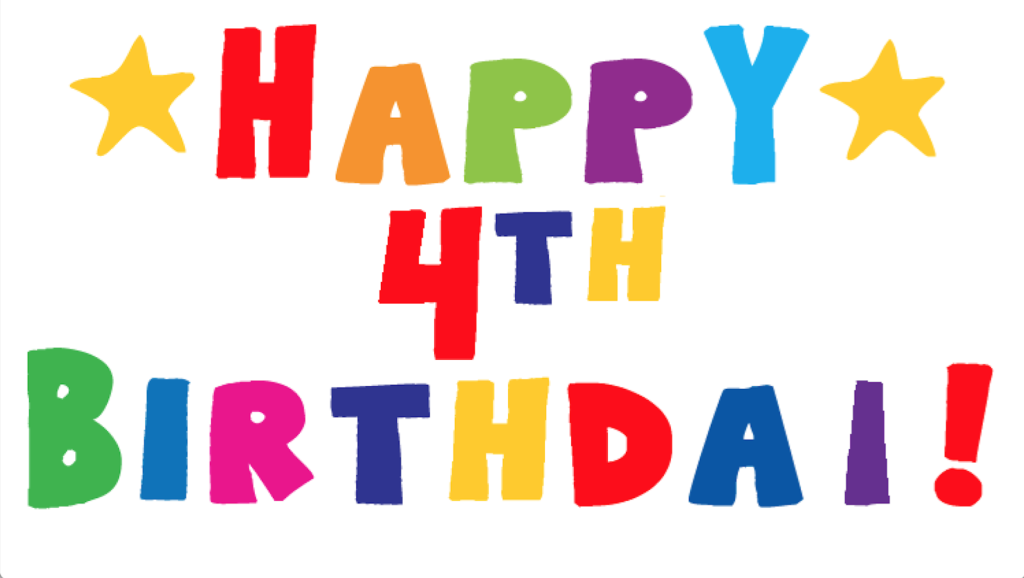On January 1, 2018, we at Dementia Alliance International celebreated our fourth birthday. We have definitely come a long way following the aspirations of our founders, and although we have achieved quite a lot, DAI still has much work to do. We welcome you to join us in any or all of our work, and can be contacted here.
As we have many new members who may know very little about us, our first blog for 2018 is to share a piece added to our Facebook page, titled "Our Story", which you can read in full below. There is a lot of other historical information which one day we will collate and publish, but for now, this is who we are:
Dementia Alliance International (DAI) is the world’s leading organisation exclusively for people diagnosed with any type if deMEntia[i]. It is an advocacy and support group of, by and for people with deMEntia. We are “the global voice of dementia,”, currently representing 44 countries. DAI is a 501c3 registered charity in the USA.
DAI’s vision[ii] is “A world where people with deMEntia are valued and included”.
DAI started instinctively, after many years of discussions with organizations and then others diagnosed with deMEntia, for the purpose of self-advocacy. When our founding members that civil rights leader, Martin Luther King, Jr. had already recognized in another disenfranchised group, the mid-20th century African-Americans.
From day one of our organisation, we have had Margaret Meade’s quote on our website, and we continue to work hard to prove this to be true:
Never doubt that a small group of thoughtful, committed citizens can change the world; indeed, it’s the only thing that ever has.
Collectively, we at DAI realised we had to struggle with multiple challenges: not only medical, but also many based on social stigma and discrimination, related to changes to our cognitive ability. So we began to articulate the unfair, hurtful, de-humanising injustices imposed upon people with deMEntia.
The task of speaking out against people causing us harm is complicated (and sometimes precluded) by the fact that many of them are well-intentioned medical staff, service providers, advocacy organisation and close friends or family who are also often our care partners[v], but who may be ignorant, unwilling or unable to take the time to find out our wishes and needs. Although we are grateful for the support of family and friends, we have sometimes been demonized for needing them.
We have also been demonized for not needing them, and for daring to live positively with deMEntia.
People with deMEntia historically are written about as if we “suffer” from it, and are labelled a “burden” to society and have been labelled with all manner of other disrespectful terms. We ask others to use respectful language when talking to us, or when or writing about us.
What we suffer from is the dehumanizing language many use to refer to us, and “the worst care in the developed world.”[viii]
We at DAI therefore believe it is imperative to change misperceptions about dementia, address stigmas associated with it, discourage the detrimental psychological and physical abuse of people with any disAbility[ix], and demand that the voices of people with dementia be included in decisions directly affecting us.
The misguided under-estimations of our potential continue to create oppressive and humiliating barriers to our full engagement in society. Some of us have even been publicly accused of being imposters, on the grounds that no one with dementia could address an audience of professionals at an academic or medical conference, or live positive and productive lives. Perhaps the worst myth we experience is that others expect that people with deMEntia will go from diagnosis immediately to end stage dementia. This myth is endemic.
One DAI co-founder, Kate Swaffer is regularly quoted saying:
“There is a systemic and gross underestimation of the capacities of all people with dementia, even in the later stages of the disease.”
Hence we have begun to individually and collectively advocate and educate more enthusiastically, locally, nationally and internationally, at professional conferences, and in the vast online communities we have built.
We are dedicated to empowering all people live a better life with dementia, and not just to die from it.
We advocate for our rights of equal and full inclusion in public spaces and activities; we educate the public on our human-ness in the face of cognitive disAbilities, so that we are not reduced in legal or social status. We seek to live well (just as all people do – that’s the point), to be valued for who we still are, and to be included as equal citizens.
Our global focus has been on human rights and disAbility rights, and we continue to work with organisations such as the World Health Organisation (WHO), the United Nations, the Conventions Of State Parties and others, to ensure that since the WHO Global action plan on the public health response to dementia 2017 – 2025[x] was adopted, national, regional or local dementia plans will include human rights.
This is why we continue to advocate at the grass roots level, and have become activists in the global space, for better care, to ensure deMEntia no longer receives the worst care of any disease in the developed world, or indeed, anywhere in the world.
References
[i] We spell deMEntia like this, to highlight the person, not the disease
[ii] Dementia Alliance International, 2017, About DAI: Vision, https://www.dementiaallianceinternational.org/about-dai/vision/
[iii] Founding members: Kate Swaffer, the late Richard Taylor, Amy Shives, Susan Stephen, the late Dena Dotson, Steve Ponath and Janet (Pitts) Ford.
[iv] King, M.L., Jr., 1963, "Letter from a Birmingham Jail", http://www.africa.upenn.edu/Articles_Gen/Letter_Birmingham.html
[v] Care partner: often referred to as carers, caregivers or significant others. We use the more empowering term, care partner
[vi] Dementia Australia, 2017, Dementia Language Guidelines, https://www.dementia.org.au/resources/dementia-language-guidelines
[vii] DEEP, 2018, Dementia words matter: Guidelines on language about dementia, http://dementiavoices.org.uk/wp-content/uploads/2015/03/DEEP-Guide-Language.pdf
[viii] The Organisation for Economic Cooperation and Development’s published report of the world’s 38 richest countries (OECD, 2015, Addressing Dementia: The OECD Health Policy Studies, OECD Publishing House, Paris).
[ix] We spell disAbility like this, to highlight the Abilities people with dementia or other disAbilities we retain.
[x] WHO, 2017, Global action plan on the public health response to dementia 2017 – 2025, http://www.who.int/mental_health/neurology/dementia/action_plan_2017_2025/en/

